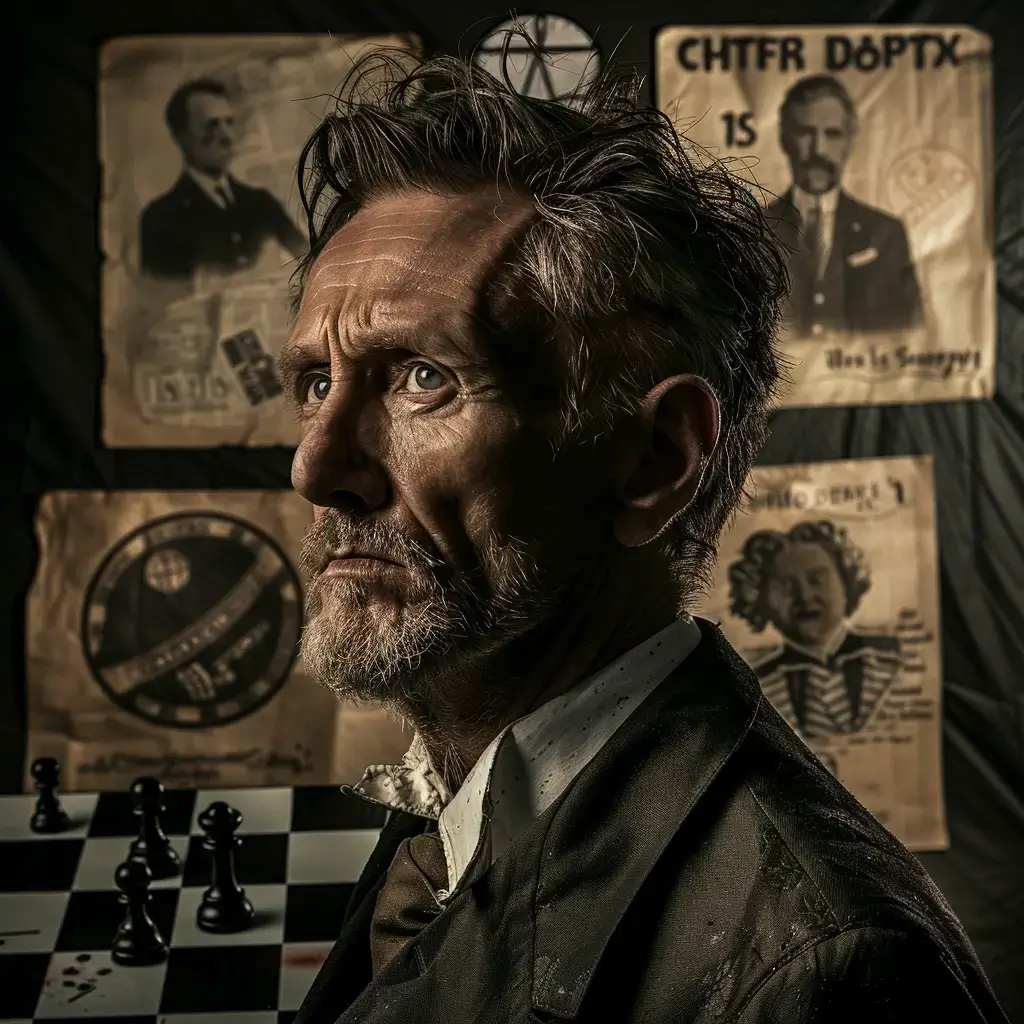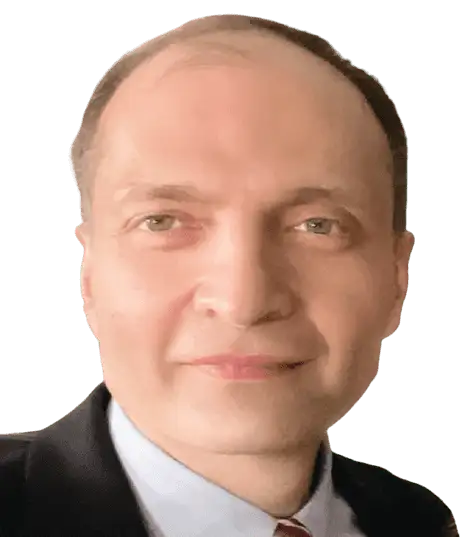Life is a Drama
Life is a drama. It's merely a facade, an image we portray to the world based on the stories we have created for ourselves. We move with the flow, keep the status quo, and maintain conformity within the group. Conformity is important to us because we desire to be part of a group. Thus, we adhere to the norms of the group as a survival mechanism. Our life would be more comfortable if we are part of a group. Hence, we have to accept the norms, traits, characteristics, habits, procedures, and actions of the group in order to blend in, even if these actions seemingly do not make sense. But we have to go with the flow. Sometimes, we might question the validity and authenticity of certain actions we undertake, but when we see others doing the same, we conclude that it must be right because so many people are doing it. We continue to pursue these lines of thought.
Life is a show. Everything is part of this spectacle, including the people we meet, the parties we attend, the smiles we fake, the fears we hide, the lies we believe, the confidence we project, the wealth we display, the reputation we develop, the personalities we assume, the food we eat, the clothes we wear, the emotions we suppress, the stories we tell, the mistakes we cover, the respect we demand, the identities we adopt, and the promises we make. Even the roles we play are part of it. We preach virtues, carry guilt, harbor doubts, follow superstitions, justify indulgences, advertise generosity, bend principles, and claim enlightenment. All of it is a lie.
Some years ago, I was discussing with a friend the idea that the essence of being human often involves acting foolishly. This idea suggests that it is natural or inherent for humans to find themselves in situations where they may end up feeling or being perceived as foolish. Such behavior might also be described as stupid, nonessential, meaningless, or un-purposeful.
During this conversation, I shared with my friend the top ten things that, in my view, encapsulate the ways humans often embody foolishness in life. Here are the top ten factors that contribute to human folly:
- Irrational Religious and Unscientific Ideologies and Beliefs: Adhering to incorrect religious beliefs and unscientific ideologies.
- Big Corporations and Entertainment Industry (Hollywood/Bollywood): The influence of major corporations, especially tech companies, and entertainment industries in shaping public perception and values.
- National, Ethnic, and Cultural Affiliations: Blind loyalty to national, ethnic, or cultural groups that can limit perspective.
- Family and Friends: Pressure and expectations from social circles that may lead to unwise decisions.
- Money and Greed (Wall Street/Crypto/Investments): The pursuit of wealth through risky or unethical means.
- Mind-Altering Drugs and Stimulants: The impact of addictions and habitual use of substances on decision-making.
- Media (News, Propaganda, Advertising, and Conspiracies): Misinformation and manipulation through various media channels.
- Politicians and Government: Misguidance through political rhetoric and government actions.
- Employers and Gurus: Being misled by authoritative or influential figures in professional or spiritual realms.
- Nonprofits: Potential exploitation or misguided initiatives under the guise of philanthropy.
All these influences exist merely to fool us, and we willingly participate in them. Essentially, much of what we do lacks purpose, or we engage in activities for misguided reasons. Our actions and beliefs are manipulated, wrapped in different guises, and presented to us, and we often follow blindly without questioning their authenticity, credibility, or, more importantly, their applicability to contemporary life.
The primary question to ask about any of these practices is whether they make sense. If they do, are they still applicable? If applicable, are they relevant to your personal life? Do they make any difference? Do they improve anything, provide any benefits, or do they bring more negatives than positives? It seems that all day long, humans are duped by various external forces.
If it's not our personal beliefs being targeted, then it's the major corporations. If not corporations, then it's national or cultural affiliations. If not these, then family and friends. If not personal relationships, then the pursuit of money and greed. Beyond these, there are societal traps like drugs, media propaganda machines, and political maneuvers—all laying in wait to ensnare us. Your employers and even spiritual gurus are part of this grand scheme. It seems everyone is out to get you.
It appears we're all part of a grand drama playing out on a global scale, where you're merely a spectacle. Mostly, others are the players, and you are used as a pawn on the chessboard. You might think you are moving independently, but in reality, you are being moved by others.
You may believe you possess liberty, independent thought, and that your actions are your own. Unfortunately, this is not the case. You might think you're making decisions for yourself, defining your destiny. However, your actions and thoughts are not as free as you might believe—they're influenced by all these external factors. Sometimes, we are aware of this, yet we continue to participate. It's just like being part of a drama enacted on a world stage.
The other day, in my gym's locker room, I saw something on the TV. A picture of a young, gentle, handsome soldier flashed on the screen. He had died on a military mission. The commentators were saying he sacrificed his life for the nation, and we should all be proud of him. However, I see it differently—it's a lost life. He was duped into joining the army, potentially fighting for causes he might not have fully understood. Why would anyone risk their life for a cause they don’t comprehend, let alone die for something they don’t believe in? It's foolish to die for a piece of land called a country or for an ethnic group you call your own. Dying in the name of religion, when more people in history have perished for this than any other cause, seems equally tragic. If by definition there can be only one 'right' religion, then the majority are dying in vain.
Consider the freedom fighter who dies for his people's independence and is labeled a terrorist, while a soldier defending territory against him is hailed as a martyr and respected. Once the freedom fighters gain independence and become soldiers themselves, anyone who rises against them within their country is seen as the enemy. This shifting dynamic suddenly changes our definitions of good and bad. How is this possible? How does this work?
It seems everyone is out to mislead us. I've seen army recruiters in high schools with fancy banners and trucks—like the permanent fixture at my own son's high school—showing off glamorous images to brainwash these kids into joining the army. These young souls may one day die for interests they know little about. At that age, lacking worldliness, some succumb to this talk, this propaganda, these unconvincing powers. And for every so many who join the army, some get disabled, while others might die or suffer from PTSD after war-related deployments.
To me, it's foolish to fight and die for these causes, to believe with absolute conviction in these nonscientific ideologies, and to fall for the propaganda of big corporations.
Identity politics based on ethnicity, nationality, and religious beliefs often divide us. Instead, I firmly believe in and support universal global human rights, which should be guaranteed to everyone, regardless of their religion, ethnicity, beliefs, geographical location, political affiliation, skin color, orientation, or any other distinguishing characteristic. Human rights should be universal and constant.
To me, basic human rights mean that if I believe I deserve a certain right, then everyone else should be entitled to the same right. For instance, if I value the freedom to express myself openly, then I advocate for this right for everyone. Similarly, if I desire a warm, comfortable bed with continuous electricity, good food, safe shelter, and well-maintained public spaces like roads and parks, then I believe these should be accessible to everyone, universally.
These rights should not be limited or defined by external forces with inherent agendas. Whether it's governments, religious entities, or corporations, none can offer a truly unbiased opinion because they often have hidden agendas and biases. If we truly care about the welfare of all people, why not advocate for these essentials universally?
Moreover, our responsibility shouldn't be limited just to humans but should extend to the entire planet. Why not defend Earth itself from abuse and environmental degradation? Why allow it to be polluted? Why not stand up for the rights of the oppressed and those without a voice? Instead of propagating divisive ideologies and convincing ourselves that one group is better than another, why not advocate for the well-being of everyone? If something is good enough for you, it surely must be good enough for others. These are the principles I uphold.
Sometimes, I wonder if our destiny is simply to be duped into believing lies, used throughout our lives without questioning anything, just going with the flow. Is that really our fate? I seriously think that might be the case for the majority, but those of us with a conscious mind and the ability to analyze can see things differently. Yes, life is a drama, but we don’t have to blindly accept it as such. Knowing the reality behind everything allows us to judge for ourselves whether we want to be passive participants or choose to live our lives based on our own standards and beliefs, informed by reality.
Life may be a drama for most of us, but understanding the reality behind it can lend meaningfulness to our experiences. When we understand the true motives and intentions of various institutions, entities, and individuals, we can make informed decisions about what is beneficial for us.
In this blog, I want to emphasize the importance of contemplating these issues. What is right? What is wrong? What are the true intentions and purposes of different groups? The goal is to make correct decisions in our lives. As I have mentioned in previous blogs, the most intelligent among us are those who make the most correct decisions. Making the right choices leads to a content life, minimizing mistakes.
Ultimately, understanding this dilemma—this life, its intricacies, and the various forces that influence us—is crucial. We should not passively participate but actively analyze and discover the true purposes behind everything. Stand up for universal human rights; if something is good enough for you, it's surely good enough for someone across the globe.
Reject wrong ideologies and convictions, especially ethnic and tribal beliefs that promote isolation rather than inclusion. Be a global citizen with a cosmic perspective that wishes well for all. Dismiss the illusions of worldly dramas and their artificial manifestations.
In conclusion, I hope we all strive to lead lives that are thoroughly contemplated and rationally lived. By understanding and analyzing all facets of our existence, we can avoid the drama of the world, challenge the status quo, and lead fulfilling lives.

